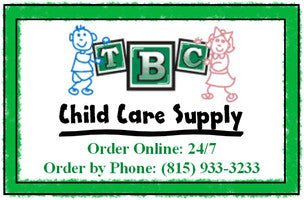Sanitation is a fundamental aspect of childcare that directly impacts the health, safety, and overall well-being of young children. Maintaining a clean and hygienic environment is not only necessary for preventing the spread of infections but also for creating a space where children can learn, play, and grow without unnecessary health risks. In this blog post, we'll delve into the vital importance of sanitation in childcare and how it contributes to the holistic development of the little ones in our care.
- Disease Prevention and Health Promotion
Proper sanitation in childcare facilities is the primary defense against the spread of contagious diseases and illnesses. Young children, with their developing immune systems, are particularly susceptible to infections. Regular handwashing, proper disposal of tissues, and routine cleaning of surfaces help prevent the transmission of germs, thus promoting good health among children and staff.
- Safety First: Preventing Accidents and Injuries
A clean and organized environment is a safer environment. Well-maintained floors, uncluttered spaces, and childproofed areas significantly reduce the risk of accidents, falls, and injuries. Proper sanitation also includes the safe storage and handling of cleaning products to prevent accidental ingestion or exposure to harmful substances.
- Creating a Positive Learning Environment
A clean and tidy childcare facility creates a positive atmosphere that supports learning and growth. When children are in a well-maintained space, they are more likely to feel comfortable, secure, and motivated to engage in educational activities. A clutter-free and clean setting helps children focus on their studies, interact with their peers, and participate actively in various learning experiences.
- Role Modeling Good Hygiene Practices
Childcare providers play a crucial role in modeling good hygiene practices for the children in their care. By consistently demonstrating proper handwashing techniques, covering mouths when coughing or sneezing, and maintaining a clean environment, children learn essential hygiene habits that they can carry into adulthood. These habits contribute to a healthier society as a whole.
- Parental Peace of Mind
Parents entrust their children to childcare providers, placing their faith in the center's ability to keep their little ones safe and healthy. An environment maintained with high standards of cleanliness and sanitation gives parents peace of mind, knowing that their children are in a safe, hygienic setting conducive to their growth and development.
- Reducing Absenteeism and Interruptions
When a childcare facility maintains proper sanitation practices, children and staff are less likely to fall ill. This directly contributes to reduced absenteeism among children and ensures that parents can continue their work routines without interruptions caused by sick days. Moreover, it allows for consistent learning and engagement in the childcare setting.
- Instilling Lifelong Hygiene Habits
Early exposure to good sanitation practices instills habits that children carry into adulthood. Teaching children to wash their hands, tidy up after themselves, and maintain cleanliness fosters a sense of responsibility and personal hygiene that will benefit them throughout their lives.
Sanitation in childcare is not just about cleanliness; it's about safeguarding the health and future of the children under our care. A clean and hygienic environment is a foundational element for their growth, learning, and overall development. By prioritizing sanitation in childcare, we create a nurturing space where children can flourish and thrive, laying the groundwork for a healthier and more responsible generation.
